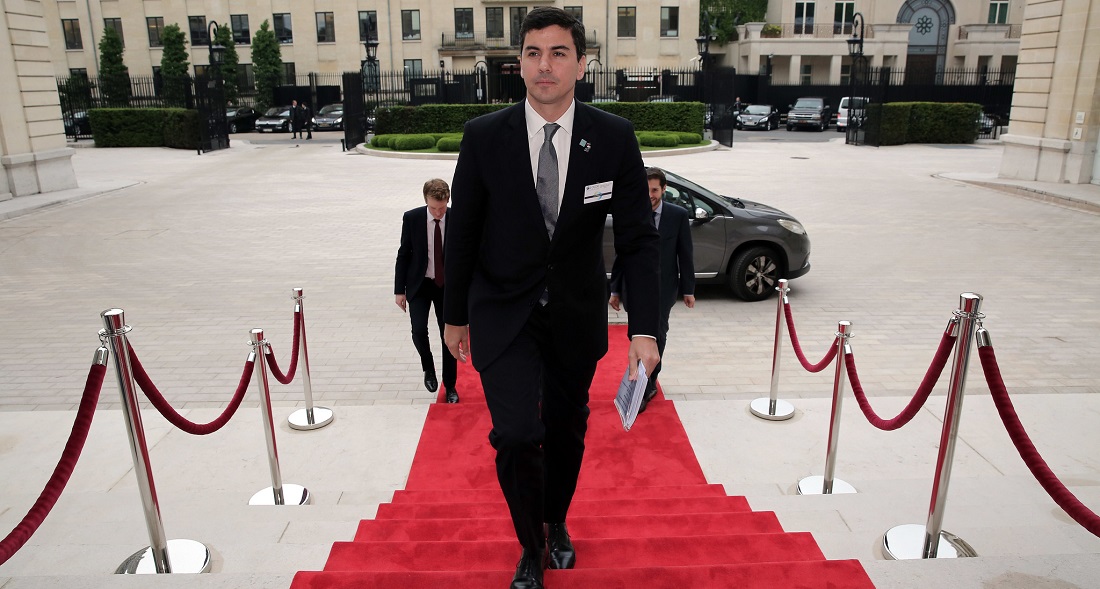
Paraguayan president sets ultimatum for EU-Mercosur trade deal
Sep, 26, 2023 Posted by Gabriel MalheirosWeek 202339
Paraguayan President Santiago Peña has issued an ultimatum to the European Union (EU) regarding the trade deal with Mercosur, a move that the Brazilian executive denies was coordinated with Brazilian President Luiz Inácio Lula da Silva.
In an interview with the Financial Times, the Paraguayan President warned that the long-delayed free trade agreement between Mercosur and the EU must be concluded by December 6th, or Latin American nations will step back and negotiate with Asian countries.
According to the British newspaper, Peña, who was in New York for the UN General Assembly, stated that he had agreed with Brazilian President Luiz Inácio Lula da Silva that if the EU agreement was not finalized by the time Lula handed him the rotating presidency of Mercosur in early December, Peña would suspend the negotiations.
In Brasília, the presidency’s press office stated that there was ‘no previous consent’ for Peña to make this statement. Paraguay’s ultimatum is seen more as an expression of a desire to finally conclude the deal than a serious threat.
At the same time, there is a perception on both sides, in Mercosur and the EU, that the agreement must be reached now, or they will lose the right timing, with little clarity about the next steps, as there will be elections for the European Parliament next year, uncertainties in Argentina, and other factors that could further complicate future discussions.
Nevertheless, the position of some EU member states, such as France and Austria, at least publicly, is not helping to advance negotiations.
One problem is that French President Emmanuel Macron remains in a politically fragile position to overcome French agricultural protectionism, despite all the rhetoric about the growing geopolitical importance of negotiations with Mercosur.
Meanwhile, industrial sectors in Europe, especially in Germany, are calling for flexibility from the EU to conclude the bi-regional agreement as quickly as possible, precisely to avoid losing more ground in South America.
The truth is that the importance of the EU-Mercosur agreement is undeniable. Mercosur’s trade volume with Asia is already greater than with Europe and will continue to be so. Without favorable agreements, Mercosur already sells a lot to Asia. And the Southern Cone bloc would not reach such a comprehensive fourth-generation agreement with Asian countries as the one on the table with Europe.
Furthermore, it’s worth noting that the current orientation of major companies is to leave China. When this happens, production parks need to be repositioned. The EU-Mercosur agreement specifically provides for facilities for cross-border investments between signatories. For a European company leaving an Asian country, the EU-Mercosur agreement could offer a much more favorable business environment. And all of this is important for neo-industrialization in Mercosur.
Regarding Asian involvement, only China and Japan are significant investors in Mercosur. Europe has more capacity to invest. There are also significant sovereign wealth funds concentrated in Europe looking to invest outside China.
When the EU-Mercosur agreement was announced in 2019, Japan was one of the countries that immediately increased interest in negotiating a preferential understanding with the Southern Cone bloc. In other words, the EU-Mercosur agreement could also attract future partners for this type of agreement.
Currently, the Southern Cone bloc only has negotiations with Singapore. Negotiations with South Korea are not progressing. There are currently no plans to open negotiations with Asian blocs such as ASEAN, the Association of Southeast Asian Nations, chaired by Indonesia.
-
Ports and Terminals
Aug, 17, 2021
0
Itajaí and Navegantes Port Complex grows 34% in July
-
Ports and Terminals
Mar, 30, 2022
0
Paraná articulates expanding Paraguay’s foreign trade through the port of Paranaguá
-
OTI Rankings
Jan, 17, 2023
0
Updated values: OTI Ranking | DataLiner | Jan-Nov 2022 vs. Jan-Nov 2021 | Brazil and Plate
-
Ports and Terminals
Aug, 25, 2023
0
Trends in port recycling: Port of Santos-gathered waste turns into alcohol


